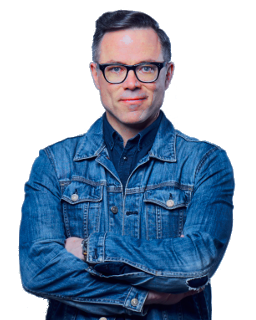Misinformation critic Timothy Caulfield presents webinar open to public
Helen Metella - 5 January 2021

How do we stay healthy? And whose advice should we trust on that?
Health law expert Timothy Caulfield of the University of Alberta Faculty of Law will help answer those questions during an evening webinar on January 12.
Relax Dammit: Don't Let Health Misinformation Stress You Out!, will feature a talk by Caulfield and be followed by a Q&A hosted by Barbara Billingsley, dean of the Faculty of Law. The presentation and discussion will draw upon Caulfield’s years of research into making decisions according to science-based evidence, and especially on current examples he compiled in his new book, Relax, Dammit! A User’s Guide to the Age of Anxiety (Penguin Random House).
"This is the era of misinformation.” says Caulfield. “We live in an incredibly chaotic information environment and studies have consistently shown this stresses us. I hope my work can provide a more science-informed path forward."
Caulfield is a Canada Research Chair in Health Law and Policy, the research director of the Health Law Institute at U of A, a professor in the School of Public Health, and an active opponent of COVID-19 disinformation. Among his current research projects he is analyzing the dominant themes about the virus dispensed via social media, for the Canadian government through its Rapid Research Funding Opportunity.
He is also the author of several other bestsellers that debunk unproven health claims. In his latest work, he explains that even the most alert and aware of us make multiple decisions every hour of the day that are based on misinformation.
Emotions and decisions
Our decisions are influenced by many cultural, social and psychological forces, says Caulfield.
Most importantly, we’re prone to making decisions first, according to our emotions, and rationalizing them afterward.
For instance, one of the most nonsensical things we do daily is drive around looking for the parking space that’s closest to our destination in order to save ourselves walking time. Yet we inevitably waste more time than we would have had we taken the first available spot. Plus, the aggravation is bad for our moods, the extra gas we expend is bad for the environment, and the false sense of accomplishment ensures we’ll continue to repeat this unhelpful behaviour.
In short, many of our rationales simply do not fit the scientific evidence, says Caulfield. The key is to look past marketing, popular culture trends and ideologically motivated spin, he says.
Caulfield’s webinar is a co-presentation of the Faculty of Law and the U of A Alumni Association. It runs from 7 to 8 p.m. on January 12, via Zoom. Register to receive the link.